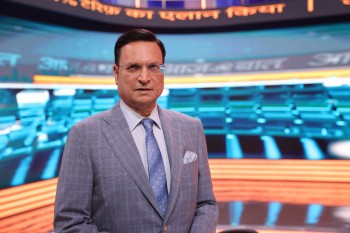 The gruesome murder of 26-year-old Nikki Bhati in Greater Noida has shocked the conscience of the nation. She died of more than 70 per cent burns in hospital leaving behind her son. Police have arrested her husband Vipin, Vipin’s brother Rohit, her father-in-law and mother-in-law on charge of murder.
The gruesome murder of 26-year-old Nikki Bhati in Greater Noida has shocked the conscience of the nation. She died of more than 70 per cent burns in hospital leaving behind her son. Police have arrested her husband Vipin, Vipin’s brother Rohit, her father-in-law and mother-in-law on charge of murder.
Chilling videos have emerged of Vipin beating Nikki and the victim rushing down the stairs engulfed in flame. Nikki’s son was heard saying, “Papa slapped Momma and poured something on her before taking out a lighter and set her on fire”.
This is not merely a dowry murder case. I think it is a dark blot on our society. The nation is seething in anger after watching the video of Nikki engulfed in flames. Nikki’s family was not poor, nor was she illiterate. Both Nikki and her sister Kanchan were married to Vipin and his brother.
Nikki’s parents gave a Scorpio and a motorbike as part of dowry. Both the sisters were subjected to abuses in their in-laws’ home because of constant demand for either Rs 35 lakh cash or a Mercedes car as dowry. Her parents had complained to their clan panchayat and Nikki returned home only to face more pressure for dowry.
Nikki’s in-laws claim that this death has nothing to do with dowry and that both the sisters were making Instagram reels to which the family had objected. The two sisters ran a beauty parlour but their earnings were taken away by their in-laws after which they had to close down the parlour.
Nikki’s father says, his son-in-law Vipin was unemployed and used to usurp the earnings of his wife and his sister-in-law. Vipin’s family, belonging to Gurjar caste, owned land in the locality and were earning rent from shops and some other commercial properties.
The issue is not whether Nikki was killed because of dowry or making Instagram reels. The harsh fact is that a daughter had to suffer verbal and physical abuses in her in-laws’ home. It is immaterial whether she burnt herself or whether she was burnt to death. If a single daughter is harassed because of dowry, it is a bane for our society.
In the past several decades, strong anti-dowry laws were enacted to prevent dowry deaths. Religious gurus and social reformers came forward and launched missions to eradicate the curse of dowry. The disease still remains.
It is also a painful fact that many dowry-related atrocities do not come to the notice of the public. In most cases, the families try to hush them up citing the honour of their daughters or the prestige of their clan or caste. The same thing happened in Noida. The panchayat tried to hush it up.
It is also a fact that a strong anti-dowry provision that was incorporated in Section 498-A was also misused by many families. The situation came to such a pass that the judiciary lost faith on people who filed cases of dowry. While investigating the case of Nikki Bhati, all such things must be kept in mind.
Why SC cracked the whip on comedian influencers?
The Supreme Court on Monday made it clear that online shows by influencers and YouTubers do not enjoy the protection that free speech does, because they come in the ambit of commercial categories.
The apex court directed five comedians-cum-influencers, Samay Raina, Vipul Goyal, Balraj Paramjeet Singh Ghai, Sonali Thakur and Nishant Tanwar to tender unconditional public apology on YouTube for mocking people with disability.
These five comedians had made fun of a child suffering from spinal muscular atrophy in the comedy show India’s Got Latent. The parents of the kid were trying to raise a fund of Rs 16 crore for treatment of their child.
Justice Surya Kant and Justice Joymalya Bagchi ruled, “When anyone laughs at disability, it creates a problem as it reflects an apartheid mindset. Influencers must stop hurting the sentiments of sections of people. Today they ridiculed the disabled, tomorrow it will be the turn of women, children and senior citizens. Where will it take society?”
The bench said, “Influencers commercialise speech. When a speech falls in the ambit of commercial or prohibitive categories, the immunity under right to free speech is not available.”:
The apex court asked the Centre to frame guidelines to stop influencers and YouTubers from mocking disabled, people, women, children and senior citizens.
Now that the apex court has asked the Centre to frame guidelines in consultation with News Broadcasters Standard Authority (NBSA), an independent body which ensures that the guidelines are followed by TV news channels, the ball is now in the government’s court.
Retired Supreme Court judge Justice Arjun Sikri is the head of NBSA. The apex court made it clear that any guidelines that should be prepared should not be seen as a knee-jerk reaction and they should be effective so that future challenges can be handled properly.